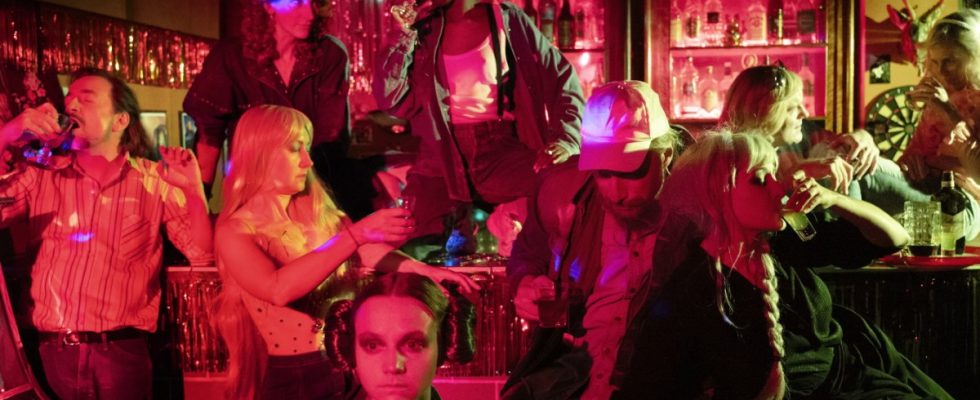“There’s always pressure, at every premiere,” says Jan Bosse. A few days before the season opening at the Kammerspiele, the director still seems elated. It’s something special to be able to take over at the start of the season, “I’m happy to do it.” Especially since the rehearsal conditions are ideal: there are no performances on the stage in the evenings, there is no need to always set up and dismantle, there is more time for light and sound. “Great conditions,” enthuses Bosse. So it sounds like optimism and joy for the opening premiere on September 30th, which is a good starting point after the previous difficult seasons.
However, there is still some opening pressure. The Chilean theater group La Re-sentida under the direction of Marco Layera is showing its production “La posibilidad de la ternura / The possibility of tenderness” in the Therese-Giehse-Halle two days earlier (Thursday, September 28th). The premiere was just shown at the Ruhrtriennale, the project with Chilean young people is a co-production with the Kammerspiele, which is why it is now also being shown here. The theater collective with its documentary approach is already well-known in Munich; with “Oasis de la impunidad” they had already pushed the audience to both of their pain limits.
The Chilean theater collective La Re-sentida can be seen in the Therese Giehse Hall with “La posibilidad de la ternura / The possibility of tenderness”.
(Photo: La Re-sentida)
But the big premiere at the Schauspielhaus still belongs to Jan Bosse. It is not the first time for him to open a season under the direction of Barbara Mundel. His large social panorama “Effingers” based on the novel by Gabriele Tergit was at the beginning of the 2021/22 season. The book has around 900 pages. Now, two years later, he is bringing another novel adaptation to the stage, the size of which has shrunk to just under 400 pages, but still a large panorama: Sasha Marianna Salzmann’s “Everything in a human being must be wonderful”.
Salzmann’s novel was published in 2021, when the Russian tanks had never been on Ukrainian soil a second time. However, Crimea had already been annexed, and that resonates with Salzmann. At the center of the book are four women, two mothers, two daughters. The two older ones, Lena and Tatjana, emigrated from Ukraine to Germany after the fall of the Wall; their daughters Nina and Edi are growing up there. But the younger people understand nothing about the history of their ancestors. There is too much silence about the wounds caused by the events of history.
The author, born in Volgograd in 1985, herself belongs to this generation of daughters. She researched “Everything in people must be wonderful” and conducted many interviews with contemporary witnesses who had emigrated to Germany. She developed independent characters from the many stories. The first part of the book focuses on Lena, her growing up in the Soviet era, her medical studies, the transition, her lucrative work as a dermatologist, the growing gap between rich and poor, growing resentments, and finally her emigration. In the second part the focus is on Nina and Edi and their desperate attempts to understand themselves, their identity and the past.
The stage was modeled on a Berlin pub
In Nuremberg last season you could see a short, intense evening with this material. Director Martina Gredler focused heavily on the younger generation. This will not be the case in Munich. “I didn’t manage to turn the novel into a 90-minute novel,” says Bosse. The production will take about twice as long. His focus will be on both generations. “They are people who have lost the coordinate system.”
The characters will meet in various constellations in a kind of pub – there is a real model for this: the “Bornholmer Hütte” in Berlin. The story is told from today’s perspective. In the pub, the present is discussed, so to speak, jumps into the seventies and nineties are included as memories. The production works a lot with realism, says Bosse. The jumps in time made the events on stage surreal and theatrical. There is also live music.
A ten-member ensemble is part of this production, the central female characters play Johanna Eiworth and Wiebke Puls as mothers, Edith Saldanha and Maren Solty as their daughters. Bosse calls what they have to play “actor material”. Salzmann, who comes from the theater, provided theater material with the novel. And that is also a good starting point.
Everything in man must be wonderfulPremiere: September 30th, 8 p.m., Schauspielhaus; La posibilidad de la ternura / The possibility of tendernessMunich premiere: September 28th, 7:30 p.m., Therese-Giehse-Halle, www.muenchner-kammerspiele.de

